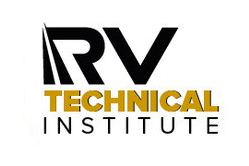I If you’re just getting started in the RV world, it can feel daunting to think about all the possibilities and choices you have to make. Even before you hit the road, you need to consider things like the types of camping and activities you’ll experience, how many people and toys you want to haul, and more. While it might initially seem intimidating, we’ve gathered some of the most important things to consider in our First-Time RV Buying Guide FAQ.
If you’re just getting started in the RV world, it can feel daunting to think about all the possibilities and choices you have to make. Even before you hit the road, you need to consider things like the types of camping and activities you’ll experience, how many people and toys you want to haul, and more. While it might initially seem intimidating, we’ve gathered some of the most important things to consider in our First-Time RV Buying Guide FAQ.
 What Will You Be Doing While RVing?
What Will You Be Doing While RVing?
Camping and road-tripping are two of the most obvious things people do in their RVs, but there are so many other activities your vehicle can enable. Working remotely, hauling ATVs, kayaks, and bicycles to choice locations can tax your RV if you haven’t chosen the suitable model. Consider how much space you’ll need for gear and people, and if you’re regularly spending more than a few nights on the road, you’ll want to consider a model with enough sleeping accommodations for you and your guests.
If you plan on working remotely from the road, some RVs offer office space and other configurations that make a mobile office much easier to live with. You should also think about how much work you actually want to do while you’re on vacation, as a road trip spent on your computer won’t feel very relaxing.
 How Should I Pay for My RV?
How Should I Pay for My RV?
Depending on the model, some RVs can cost $200,000 or more, with premium diesel-powered vehicles costing much more than that. Unlike car loans, which typically offer terms of up to seven or eight years, RV financing can extend to 20 years in some cases, making the monthly payments more affordable. Valley RV works with a range of financial institutions to help you finance your new RV, and we can help you get the rates and terms that fit your budget and needs.
Insurance is a cost you’ll also have to consider, as protecting your investment is essential. Your insurer should offer robust coverage for accidents and damage that can occur on the road and off, and it’s critical to shop around to find the best rates.
How Much Maintenance Do RVs Require?
The first part of RV maintenance comes with the mechanical components, which can be similar to many trucks and vans you may be familiar with. You’ll need to keep up with routine maintenance, including engine oils, air filters, and tire air pressure. Those are the easy parts of RV maintenance. Consider that your vehicle is also a home on wheels, and it will require all of the same care and thought that your actual house needs. Plumbing, water and waste tanks, interior fixtures, cleaning, and sanitation are all significant issues with RV living, and you’ll need to keep up with them to have a vehicle that stands the test of time.
 Where Should I Store My RV?
Where Should I Store My RV?
You have a few options for storage that range from cheap and not very protective to more expensive and secure. Storing in a cheap facility with the RV exposed to the elements might save you space at home and money, but you’ll pay in the long term for repairs and cleaning as your vehicle gets a first-hand view of the weather. While you might not need to splurge on fully climate-controlled enclosed storage, choose a facility that offers indoor protection and plenty of security to prevent unwanted visitors.
When you’re ready to take the next step with your RV knowledge, we’ve got you covered. Valley RV sells and services a range of new models, and our staff is available to answer all of your questions, no matter how experienced you might be. Even if you’re not in the market for a new RV, come see us for all the information and answers you need to hit the road with peace of mind.




